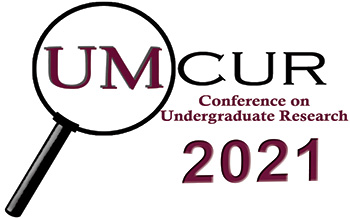Project Type
Presentation
Faculty Mentor’s Full Name
Laurie Minns
Faculty Mentor’s Department
Department of Biological Sciences
Abstract / Artist's Statement
Female Caregivers of Male Glioblastoma Patients Experience PTSD
Authors: Burke, Emily E.; Minns, Laurie A.
Abstract
Posttraumatic Stress Disorder or PTSD is most frequent among women, but perhaps even more so in female caregivers of male Glioblastoma patients. Glioblastoma itself is a seriously neuro-debilitating disease; an invasive brain cancer that offers poor prognosis and a lifetime’s worth of trauma for not only the patient, but caregiver as well. Due to the patient’s inability to function, the caregiver takes on the pressure of standing in for the mental processes of their loved ones, while juggling their own health. Most prominent among the causes of PTSD is bearing witness to death; a slow, painstaking process each female caregiver must prepare herself for when caring for a Glioblastoma patient. The development of additional mental health issues for the caregiver is bound to follow such diagnoses. This study explores the greater ties between PTSD and caregiving as a female for male Glioblastoma patients. Qualitative analysis of 102 letters written by female caregivers of male Glioblastoma patients reflected the difficulties these caregivers face concerning PTSD. This study was reviewed by the University of Montana Institutional Review Board, and informed consent was obtained from each participant (IRB #224-19). The results of this study show female caregivers experience PTSD during and after actively caring for a spouse with Glioblastoma. While such intricate care is devoted towards the patient, these caregivers are left on the wayside of the medical system, stragglers left with insurmountable debt and heartbreak. Analysis of this data provides these women acknowledgement of their suffering, and suggests what to take into consideration with their own mental health while caring for a loved one.
Category
Social Sciences
Female Caregivers of Male Glioblastoma Patients Experience PTSD
Female Caregivers of Male Glioblastoma Patients Experience PTSD
Authors: Burke, Emily E.; Minns, Laurie A.
Abstract
Posttraumatic Stress Disorder or PTSD is most frequent among women, but perhaps even more so in female caregivers of male Glioblastoma patients. Glioblastoma itself is a seriously neuro-debilitating disease; an invasive brain cancer that offers poor prognosis and a lifetime’s worth of trauma for not only the patient, but caregiver as well. Due to the patient’s inability to function, the caregiver takes on the pressure of standing in for the mental processes of their loved ones, while juggling their own health. Most prominent among the causes of PTSD is bearing witness to death; a slow, painstaking process each female caregiver must prepare herself for when caring for a Glioblastoma patient. The development of additional mental health issues for the caregiver is bound to follow such diagnoses. This study explores the greater ties between PTSD and caregiving as a female for male Glioblastoma patients. Qualitative analysis of 102 letters written by female caregivers of male Glioblastoma patients reflected the difficulties these caregivers face concerning PTSD. This study was reviewed by the University of Montana Institutional Review Board, and informed consent was obtained from each participant (IRB #224-19). The results of this study show female caregivers experience PTSD during and after actively caring for a spouse with Glioblastoma. While such intricate care is devoted towards the patient, these caregivers are left on the wayside of the medical system, stragglers left with insurmountable debt and heartbreak. Analysis of this data provides these women acknowledgement of their suffering, and suggests what to take into consideration with their own mental health while caring for a loved one.
